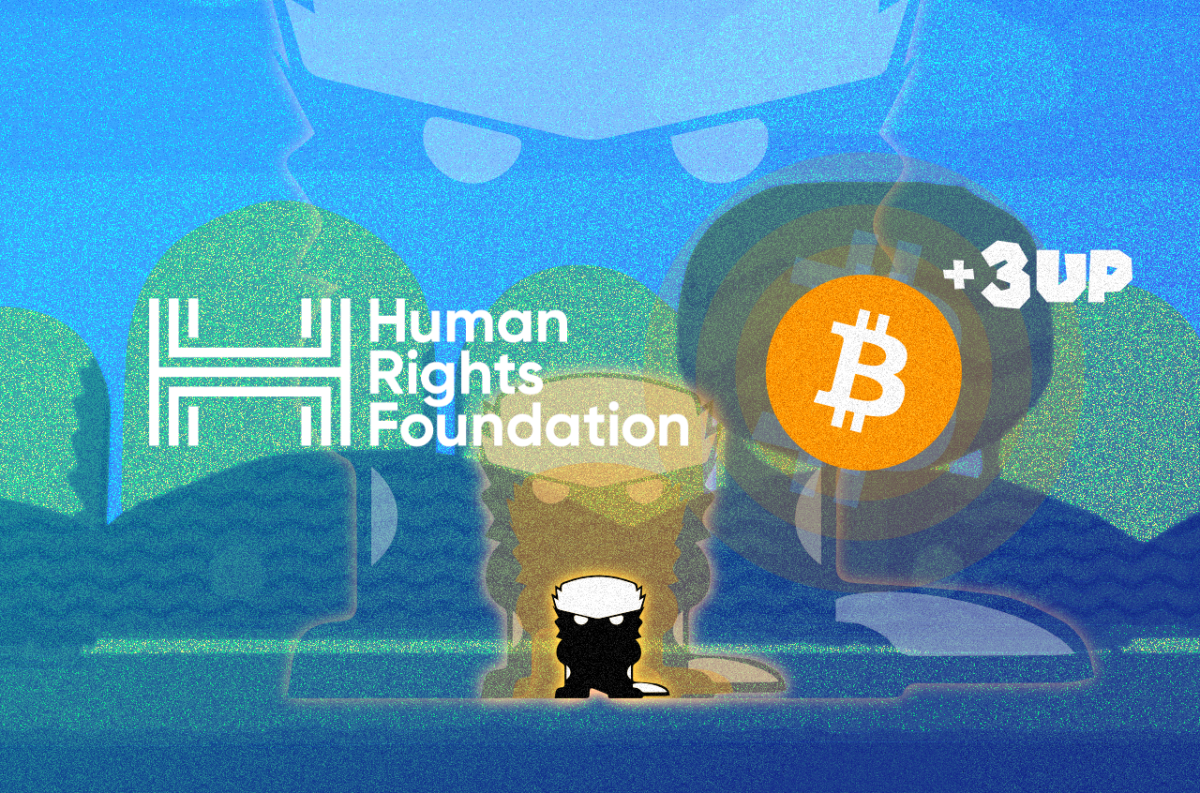
The Human Rights Foundation is donating 1 BTC each to three developers focused on increasing Bitcoin’s usability.
The Human Rights Foundation (HRF) is issuing grants to three more Bitcoin developers. JoinInbox creator Openoms, Zeus creator Evan Kaloudis and Fully Noded creator Fontaine will be gifted 1 bitcoin each, worth over $11,000 at the time of writing, making for a total of over $33,000. This marks the second round of grants from the Bitcoin Development Fund, HRF’s new fund to support Bitcoin projects.
“HRF decided to acknowledge and support these three developers and their projects because they are all focusing on making Bitcoin technology more accessible. Usability is the theme of this stage of the fund,” said Alex Gladstein, chief strategy officer at the Human Rights Foundation. “To reiterate: we will seek to reward projects focusing on improving Bitcoin usability, privacy and resilience moving forward.”
The Grants
The Bitcoin Development Fund was first announced by HRF in June, coinciding with its first grant for Chris Belcher’s CoinSwap project. Now, marking the second round of grants, three more projects will receive 1 bitcoin each. In their own way, each of these projects make existing Bitcoin tools more accessible to a broader audience.
One of the new grants is awarded to the U.K.-based pseudonymous developer “Openoms,” the creator of JoinInbox. JoinInbox is a graphical user interface (GUI) for JoinMarket, a decentralized CoinJoin implementation where users can pay others to mix their coins with them, offering an incentive to provide liquidity for mixes and, therefore, privacy. Although a GUI was already available for JoinMarket users who wanted to mix their coins (“takers”), JoinInbox is the first GUI for users that want to offer their coins to be mixed (“makers”).
“The whole point of privacy is hiding in the crowd, and using JoinMarket as a maker required you to dwell deep in the command line,” Openoms, who’s also a contributor to the RaspiBlitz project, told Bitcoin Magazine. “By making it easier to be a maker, we can increase the liquidity and anonymity set available for CoinJoins significantly.”
A second grant is issued to New York-based Evan Kaloudis, the creator of Zeus. Zeus is an app for Android and iOS that lets you connect to your Lightning node and operate it from your phone. Compatible with both lnd and c-lightning, as well as Blue Wallet’s lndhub protocol, users can send and receive transactions from the app, but also manage channels to help other Lightning users route their payments, and potentially earn fees by doing so.
Kaloudis:
“This grant will help cover hosting costs, Apple developer fees, and allow us to set up an LLC so we can get on the Apple app store proper. I'm also looking to pay most of the funds forward towards bounties to get Tor integrated into the app proper, so that Android users don't need to rely on Orbot, and so that iOS users don't need a VPN setup and can just use Tor in the app.”
The third grant is issued to Indonesia-based Fontaine (surname unknown), the creator of Fully Noded. Fully Noded is an iOS app that lets you connect to and use your Bitcoin Core node from an iPhone, making for a secure wallet, and, for example, also allowing you to monitor Bitcoin network statistics. Supported by the Human Rights Foundation and its grant, Fontaine will now also develop a web app inspired by the mobile app, which should make the toolset accessible to an even wider audience.
“The goal is to make a Tor-browser based progressive web app, so it is OS and device agnostic, no more walled gardens,” said Fontaine, who also works for social benefit corporation Blockchain Commons. “That will be the next project inspired by Fully Noded, and the HRF donation will help to fund that.”
The Human Rights Foundation
The Human Rights Foundation was founded in 2005 by Venezuelan film producer and human rights advocate Thor Halvorssen Mendoza, and is currently chaired by Russian chess grandmaster Garry Kasparov. Based in New York, the non-profit organization promotes and helps protect human rights globally, and has been a strong advocate for Bitcoin for some time. Gladstein in particular frequently promotes the digital currency as a financial tool for human rights activists, civil society organizations and journalists living under oppressive regimes, while Kasparov recently praised Bitcoin’s potential to help individuals protect their privacy and wealth.
The Human Rights Foundation was contacted a few months ago by a private individual (who preferred not to have their name disclosed) who heard of the Human Rights Foundation and Gladstein’s work on Bitcoin, and wished to donate $100,000 to Bitcoin development. The money was gifted with no strings attached, trusting that the foundation would find a good home for it. To manage and distribute the finds, HRF established the Bitcoin Development Fund, which on June 10 announced its first grant worth $50,000 to Belcher and his CoinSwap project.
Since then, HRF continued to raise support for Bitcoin development on a rolling basis via a crowdfunding campaign. Donations are used to support individuals or teams working on specific projects to help improve the Bitcoin network. Ninety-five percent of donations will go directly to the winning developers, while 5 percent will support the foundation’s human rights advocacy in general. With more gifts to be announced later this year, the Bitcoin Development Fund has now awarded a total of around $88,000 to four different projects.
The three latest grants were partly funded from the original donation, and partly from the ongoing crowdfunding campaign.
“Each of these projects is open-source, and each lacks full-time funding. After speaking with the grant recipients, it’s clear that they each hope to use their grant to advance their project to the next milestone. These projects are all important for Bitcoin, but haven’t received enough recognition or awareness yet,” said Gladstein. “We hope this announcement will help inform the world about JoinInbox, Fully Noded and Zeus.”
You can donate to the HRF Bitcoin Development Fund atHRF.org/DevFund with BTC (on-chain and Lightning) or USD.










